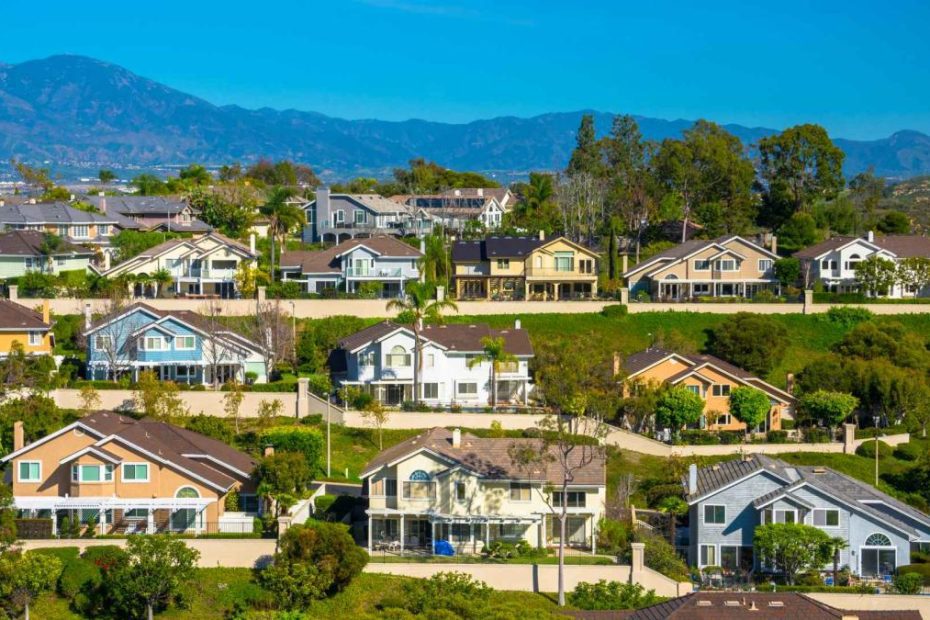
There are many factors to consider when buying a home. Evaluating factors such as cost of living, crime rates, climate change, local issues, and property taxes can help you save money.
Whether you're saving for a home, waiting for mortgage rates to drop, or planning a big move in the next few years, researching the market now can help you determine what to invest in later.
Watch: 8 Places Where Houses Suddenly Become a Bargain
Read more: 7 Reasons You Should Talk to a Financial Advisor Before Spending $50,000 or More
“While no one can predict the market with absolute certainty, the patterns we are seeing now offer some valuable clues,” said Yawar Charlie, managing director of the Aaron Kirman Group real estate division at Christie’s International Real Estate and a cast member of CNBC’s “Listing Impossible.”
Based on current market trends, GOBankingRates spoke with experts who shared their thoughts on which states you should avoid buying real estate in over the next five years and why.
Earning passive income doesn't have to be hard. You can start this week.
California
The breathtaking scenery, vibrant culture and near-perfect weather are what make California so appealing. Unfortunately, affordability is a problem.
“As a real estate agent in Los Angeles, I've noticed some trends that indicate certain states may become less attractive to home buyers over the next five years,” Charlie told us.
“It’s not just the high cost of living that’s a problem here. The state also struggles with issues like wildfires and droughts, which can make buying a home even more difficult and expensive,” he explained.
Discover More: 5 Types of Homes That Will Decline in Value in 2024
“Additionally, the tech boom, especially in areas like the Bay Area, has driven up home prices to astronomical levels, causing many to seek refuge in more affordable states.”
Rachel Stringer, a broker with Raleigh Realty, added: “Demand continues to outstrip supply, leaving inventory drastically limited.
“This supply crisis, combined with slow wage growth, is creating affordability concerns down the road,” she explained. “As costs rise faster than incomes, it may become increasingly difficult to keep up with mortgage payments.”
Florida
For many retirees, Florida is a sunny paradise, but one heavy storm can quickly turn the situation into a nightmare.
“The state's geography makes it extremely vulnerable to hurricanes and rising sea levels due to climate change,” Stringer told us. “Serious considerations include rebuilding costs, disruptions and rising insurance premiums due to storm damage. Coastal properties could lose significant value if they become uninhabitable due to rising sea levels.”
Illinois
Known for its large cities and vast farmland, Illinois is a major manufacturing center for foods, chemicals, rubber products and more.
However, according to Charlie, the state is in trouble:
“Illinois, and Chicago in particular, faces significant financial challenges,” he said. “The state has some of the highest property taxes in the country, and Chicago struggles with high crime rates and budget deficits, leading to cuts to essential services and higher taxes. These financial pressures make it difficult for residents to justify staying when they can find safer, more financially stable environments elsewhere.”
Louisiana
With its reputation for good times, great food, and rich culture, Louisiana is a state that people enjoy. But according to Tony Mariotti, founder of RubyHome, you might want to reconsider real estate investing there.
“Louisiana is highly susceptible to the effects of climate change, such as hurricanes and flooding. These risks can lead to higher insurance costs and potential property damage,” he said.
“The state also struggles with lower job growth and economic diversification, making it less attractive for long-term investment. Infrastructure issues add to the challenges of owning property here.”
New Jersey
New Jersey is another East Coast state you might be overlooking when purchasing real estate.
“In addition to high property taxes, New Jersey is experiencing an exodus of large corporations, which impacts job availability,” Charlie explained. “The state also has some of the highest health insurance premiums in the country, adding another layer of financial stress for residents. Additionally, congestion and traffic, especially for those commuting to New York City, can be a daily frustration.”
New York
Another state with notoriously high prices is New York. Charlie revealed that this state faces major problems that go beyond just cost.
“In addition to New York City’s high property taxes and cost of living, there’s also the issue of aging infrastructure,” he noted. “For example, the subway system is notorious for delays and outages, making the daily commute a headache. Additionally, the pandemic has shifted many jobs to remote work, reducing the need to live in or near the city, and many have relocated to suburbs or even rural areas.”
West Virginia
West Virginia is known as coal country, but the industry is on the decline, which has “devastated many parts economically,” Stringer said. “As jobs dry up, the population in these small towns shrinks, leaving little demand for housing. Homeowners may have trouble finding buyers willing to pay a fair price.”
More from GOBankingRates
This article originally appeared on GOBankingRates.com: 7 Worst States to Buy Real Estate in the Next 5 Years, According to Realtors

